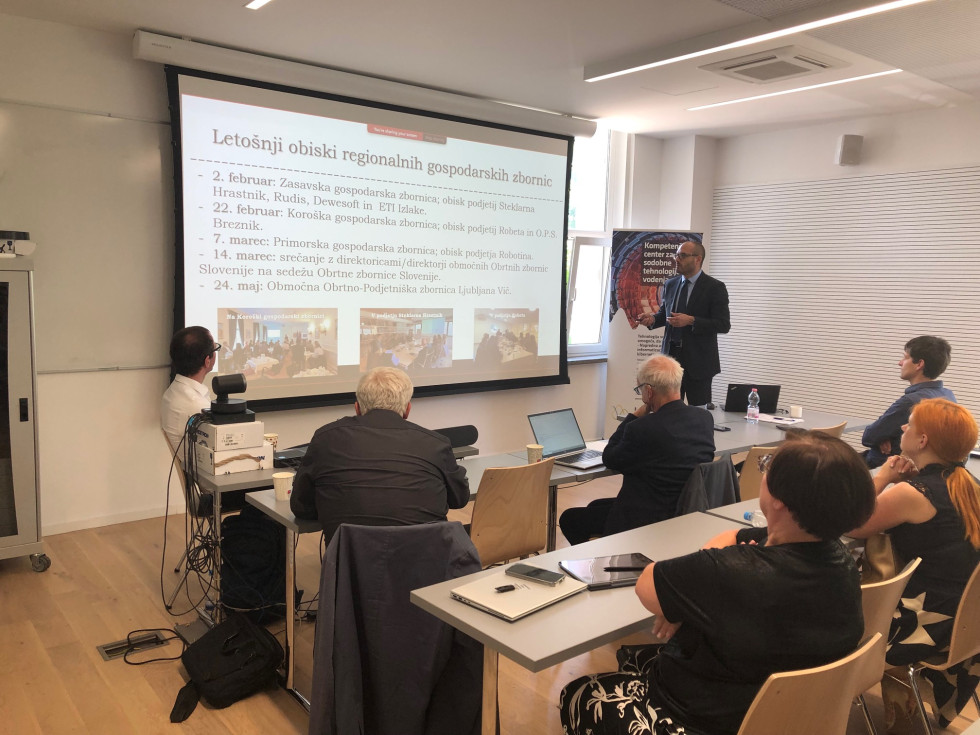Presenting economic diplomacy to members of the Centre of Excellence for Modern Control Technologies
The event focused on reviewing the strategic priority areas of control technologies: artificial intelligence for process control and optimisation, digital twins in technological processes, 'health management', autonomous mobile systems and more.
The promotion of economic diplomacy is part of a series of events aimed at systematically promoting the internationalisation of Slovenian businesses through the network of the Chamber of Craft and Small Business and the Regional Chambers of Commerce and Industry, and in particular through the Strategic Research and Innovation Partnerships (SRIPs) between Slovenian businesses and research institutions.
At the event organised by the Centre of Excellence for Modern Control Technologies, an institute that supports the implementation of various activities of the Technology Network Process Control Technology strategic consortium, Director-General Slobodan Šešum explained how economic diplomacy can help businesses expand their activities to foreign markets. He talked about how economic diplomacy works and how it is linked to the network of diplomatic missions and consular posts, presented concrete examples of support for businesses through the Business Economic Fund and good practices in the internationalisation of Slovenian businesses abroad, outlined the Ministry's activities to date aimed at strengthening Slovenia's economic cooperation with foreign countries and revealed some plans for the future. In this context, he invited the participants to take part in the planned activities with Brazil, Türkiye and India, given the business opportunities these countries can offer.
Participants expressed an interest in receiving regular updates and working more closely on internationalisation. Some examples of successful business delegations abroad were highlighted, including the April visit to Japan by Deputy Prime Minister and Minister of Foreign and European Affairs Tanja Fajon and Minister of Higher Education, Science and Innovation Igor Papič, together with Uroš Kerin, a representative of the Slovenian Hydrogen Consortium, as well as opportunities for companies to gain greater visibility in key markets through Slovenia's network of diplomatic missions and consular posts.
Recently, such discussions with businesses took place during visits to regional chambers of commerce and industry in the Savinja region in April, the Primorska region in March, the Zasavje and Koroška regions in February and the Slovenian Chamber of Craft and Small Business in March, the Regional Chamber of Craft and Small Business Ljubljana-Vič in May as well as during various annual meetings of members of the Strategic Research and Innovation Partnerships (SRIPs) and various research institutions.


